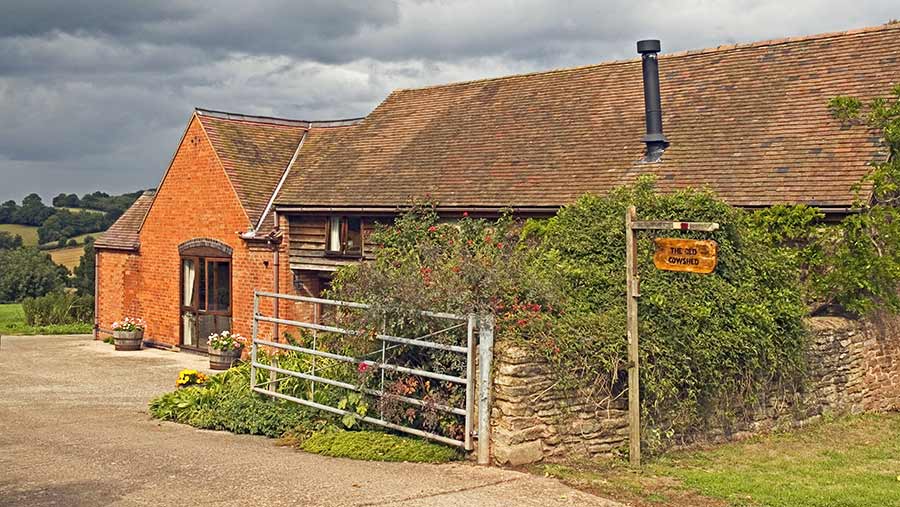Business clinic: Barn conversion – residential or commercial?
 © Photofusion/REX/Shutterstock
© Photofusion/REX/Shutterstock Farmers Weekly’s Business Clinic experts offer free advice on legal, finance, tax, insurance, farm management and land issues.
Doug Jackson, director of food and farming at Savills, looks at some things to consider when planning a barn conversion.
Q We have a barn about 50m from the farmhouse and are considering converting it for commercial or residential use.
How do the planners view such applications these days and what else should we consider in our decision?
A There are a couple of potential options, depending upon the barn’s current use – or last use, if it is now redundant.
If either of these was solely agricultural use, it might be eligible for conversion under permitted development rights (PDR).
 Doug Jackson
Doug Jackson
Director of food and farming,
Savills
Under this route, only a prior notification to the local planning authority is required, rather than a full planning application.
To be eligible for PDR, it must also be less than 450sq m (for residential use) and 500sq m (for commercial use) as well as being structurally suitable for conversion.
See also: Should I leave HLS for a Countryside Stewardship agreement?
Under the PDR regulations, the prior notification is required so that the planning authority can comment on matters such as highways, noise, flooding and sustainability.
You should also remember that by converting under PDR you lose your agricultural PDR for a 10-year period.
PDR can be quite limiting. You cannot extend the building via this route, so in some cases a full planning application might be a more flexible option.
Next, consider your objectives – are you looking for increased capital value of your holding, are you planning on selling the site or are you seeking revenue?
Do you have a question for the panel?
Outline your legal, tax, finance, insurance or farm management question in no more than 350 words and Farmers Weekly will put it to a member of the panel. Please give as much information as possible.
Send your enquiry to Business Clinic, Farmers Weekly, RBI, Quadrant House, The Quadrant, Sutton, Surrey SM2 5AS.
You can also email your question to fwbusinessclinic@rbi.co.uk.
Residential conversion will probably deliver higher capital value but will cost more to build (if you are not selling the site with planning consent), whereas commercial use will usually be more lucrative for income generation and the capital outlay is likely to be less.
If you are planning to sell the site, you must make sure losing control of it will not affect your long-term plans for your farm and particularly the value and enjoyment of the farmhouse.
Commercial activity – or even another dwelling so close to the farmhouse – could have a negative impact and may affect the capital value.
Consider whether the new use will increase the level of traffic, affect your farming operations or other tenants on the farm.
If you opt for commercial use, do your market research – are there unlet units in the local area? Is there demand for the proposed use?
Do you have the transport and, most importantly, high-speed broadband services to make this attractive to potential tenants?
You also need to consider inheritance tax (IHT). Changing an agricultural barn to commercial or residential use will result in loss of Agricultural Property Relief (APR) on that asset.
Although it might still be eligible under Business Property Relief (BPR), increased capital value and revenue from non-agricultural assets may also affect a claim for Business Property Relief (BPR).
Therefore, before any work or planning applications are progressed, you may want to consider tax planning and potentially gifting the asset to the next generation.
The information provided in these articles does not constitute definitive professional advice and is provided for general information purposes only.

